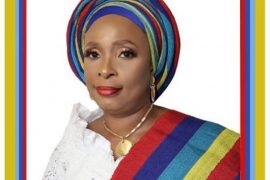As Africans continue to raise the bar in innovation globally, one African who has led major successful deals to the continent is set to inspire a rethink on how investments should be structured for the overall good of the continent. Roberta Annan in this interview with African Leadership Magazine looks at the new concept of Impact Investing, which places emphasis on social returns on investments. Excerpt:
Our findings reveal that you have been making significant efforts towards expanding several multinational corporations and small to medium-sized enterprises into Africa. What are some of the successes you have recorded in this regard?
You are correct. We have been working round the clock to ensure we get more businesses into Africa. So far, our biggest achievement is bringing LJ partnership and its subsidiaries into Africa. We have also worked on VistaJets Africa Roadshow, which held in 11 cities in Africa in the aviation sector. On the fashion side, we served as the Special Project Developer on Vogue Italia’s Special report on Africa. One of the major challenges is that we do not have a mature financial system, on the continent. We also need to develop capacity, which is part of why we are committed to introducing more local designers to other global brands to build their competencies. We have very talented young men and women on the continent. We have worked with local designers like Kenneth Ibe, who was selected as the winner of the last Lagos Fashion Week.
However, one of the main focuses of our team presently is the creation of impact investment funds. We plan to partner with those willing to create a social return when creating jobs.
With the level of success of these businesses and your broad experience as an international expert in business development, what will you pinpoint as some of the remarkable benefits of investing in Africa?
Some of the benefits of investing in the continent include: Access to local talent; Rich Natural Resource; Virgin or Frontier territories; Cultural and heritage that act as a support system can be helpful in local partnerships.
However, we must begin to situate the successes of the investments in the context of impact, as against benefits. Impact investment must be separated from institutional investment; one is economic, governance, rule of law, resources, stability, growth, the highest potential for growth, while impact investing looks at impact, social and investment return. That is, how many lives do I touch; you target an entire system when you look at the social return and converting into an economic return, education, create jobs, improve health, and take the burden off the government. This kind of investment can save the government more money that can, in turn, be invested in developing other critical infrastructure in the continent. That must be the priority.
You have recently announced a joint venture consultancy that will work with individual African countries to support their investment in key areas of opportunity such as infrastructure, oil & gas, agriculture and affordable housing. Kindly tell us more about the venture viz-a-viz its level of support to African businesses?
LJ Africa Advisors (LJAA) will be providing Client and Financial Solutions to the African Market and have a strategy to build the right relationships with key partners on the continent. We intend to bring a solid network, funding, and expertise to develop key sectors in Africa.
Findings reveal that you established Frallain Inc., a consulting agency, as part of efforts towards promoting African fashion and luxury in the global luxury market. What was the motivation behind the establishment of Frallain?
It was established to operate on four fronts, which are: Economic Development through Job Creation; Improve and build the capacity of local talent; Allow Africans to play a major role in the luxury space; allow the culture and heritage of Africans to be presented as a luxury rather than a charitable cause. So far, we can say it been a great success and that is why we are branching out.
What level of contribution have you been able to make, through Frallain, to promote African luxury and premium brands in the global luxury market?
We created the African Fashion Fund, AFF to among other things empower female fashion designers from Africa and its diaspora to succeed in the global fashion industry and market. We are doing this by providing designers with educational opportunities in partnership with established players in the fashion industry, the Africa Fashion Fund supports African designers’ professional success. We have presented a detailed description of what has been done through the AFF, to give a clear picture of what we have done.
Philanthropy and giving back in Africa, seem to an exclusive reserve of the super-rich, but you are notable for your philanthropic strides in the continent. What is your view on Philanthropy in the continent?
The world has gone beyond this kind of thinking. You don’t have to be a billionaire to be a philanthropist, I am not, however, I contribute by giving time, my creative abilities and own resources to promote the work I believe in. However, in Africa, Philanthropy has been an age-long practise, albeit unreported. Some of us grew up knowing that our parents were taking care of people that were not our biological brothers and sister, but they enjoyed all the privileges we enjoyed. It is in our nature to take care of extended family, pay school and medical bills from time to time. Some very wealthy members of the community build schools and donate to the community. This had been in practice but very poorly structured. But, we are seeing a number of individuals and companies setting up structures and doing things properly.
The President of Namibia has spoken to us about his dream for a “new Africa”, where leaders do not perpetuate themselves in power. An Africa that would not need the influence of others to do what is right; do you see this becoming a reality in the near future?
He is very correct and it is the current reality. Africans have changed the narrative and looking for the right partnerships to promote their agenda. The trend has started and it would definitely get to every nook and cranny of the continent. Individuals now have more say in the selection and policy formulation processes. It’s interesting to see women assuming more political positions. Most people educated abroad are coming back to give back to their society, through robust debates and presentations on how things are done in other climes. Technology has also helped to influence the growth of democracy in the continent. So, this is the reality.




